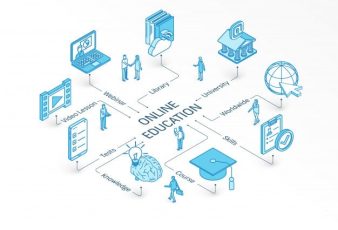Data science offers insights that aid organizations in adopting quality-driven practices to eliminate existing challenges and wastage. The importance of data science is understood as one of the most fast-adapting avenues.
Data scientists familiarize all employees and executive leaders with actionable insights to enhance procedures and improve day-to-day operations. They demonstrate effective strategies to boost productivity and eliminate inefficiencies.
Data-driven insights play an instrumental role in addressing business challenges: high employee turnover or inventory wastage. The following article will illustrate everything going on in data science!
Identifying Opportunities for Growth
All businesses aim for growth, expansion, and profit maximization. They leverage the power of big data to achieve these goals. Thus, examining data analytics allows data scientists to measure and track existing operations to identify new growth opportunities.
They develop new mechanisms and data-driven algorithms to help businesses achieve their goals of profit maximization.
For instance, if a business is planning to open a new outlet, executives rely on data analysis to examine profitability potential. Similarly, opening new plants or choosing a new supplier are also decisions that require data-driven measurements.
Data drives all growth-focused decisions, be it penetrating new markets or designing new products.
Data-Driven Evidence
Data science allows analysts to gather data from multiple channels and analyze it to identify risks. These high-stake risks include security risks, fraudulent activities, risks of loss, and wastage, amongst others.
Data scientists set up algorithms and models to provide executives with quantifiable evidence with actionable insights. Thus, it allows organizations to make decisions that are highly likely to bring about positive and profitable outcomes.
More importantly, data-driven insights also allow businesses to test their decisions by examining implementation and effectiveness. Moreover, they pull valuable insights to explore how executive decisions have aided the organization’s goals and targets.
Data scientists rely on various metrics to quantify the success of data-driven decisions.
Redefining Targeted Consumer Audience
Businesses collect consumer-focused data from numerous platforms, including social media, Google, and surveys. Data scientists rely on this data to identify a highly refined target audience based on demographics, preferences, and digital activity.
A data scientist can utilize existing data and merge it with other key data points to provide actionable insights. In addition, these insights prove instrumental in gaining more knowledge about the target consumer audience of a brand.
Data scientists help enhance the customer journey by offering a more personalized experience. Moreover, they aid organizations in tailoring their products and services to address their consumers’ exact requirements and preferences.
That aids businesses in providing products and services that enjoy higher demand and success in the market. More importantly, data science has highly useful applications in the realm of marketing.
Additionally, it is involved in identifying and refining the target audience for each product and service and personalizing brand offerings.
It aids in identifying the right platform and initiatives for each market segment and brand offering to ensure outstanding success.
Use of Data Science – In a Nutshell
Data science is the discipline that transforms raw data into meaningful insights using statistical methods, machine learning, and advanced computational techniques.
Modern organizations leverage data science to:
- Enhance Decision-Making: By analyzing trends and patterns, data science helps businesses make informed decisions.
- Improve Operational Efficiency: Automating processes and optimizing workflows reduces costs and improves productivity.
- Understand Customer Behavior: Data science enables organizations to personalize customer experiences, improving satisfaction and loyalty.
- Drive Innovation: From predictive analytics to AI-powered solutions, data science fuels innovation in products and services.
- Mitigate Risks: It helps organizations identify potential risks and implement strategies to minimize them.
Data science has become a critical component for businesses to stay competitive in a rapidly evolving market.
Applications of Data Science Across Various Industries
Data science has transformative applications in nearly every sector:
- Healthcare: Predictive analytics for disease diagnosis, personalized treatment plans, and drug discovery.
- Finance: Fraud detection, algorithmic trading, credit risk assessment, and personalized financial advice.
- Retail: Inventory management, customer sentiment analysis, and targeted marketing campaigns.
- Manufacturing: Predictive maintenance, quality control, and supply chain optimization.
- Transportation: Route optimization, self-driving car technology, and logistics management.
- Entertainment: Content recommendations (e.g., Netflix, Spotify) and audience behaviour analysis.
- Education: Personalized learning experiences and performance analytics for students.
Future of Data Science
In addition, the future of data science is bright! Emerging technologies like artificial intelligence (AI), machine learning (ML), and big data analytics driving its evolution. Key trends include:
- Increased Automation: Automated tools will simplify data analysis, making it accessible to non-experts.
- Edge Computing: Processing data closer to its source for faster insights.
- Enhanced Predictive Capabilities: Advanced ML algorithms will enable more accurate forecasting.
- Integration with AI: Seamless AI integration will revolutionize industries, from healthcare to finance.
- Focus on Ethical Data Use: As concerns around data privacy grow, ethical practices will be prioritized.
Thus, data science will continue to empower organizations to innovate, adapt, and thrive in a data-centric world.
Conclusion
That’s all about the importance of data science. Data science has numerous valuable applications for modern-day businesses. It allows corporations to mitigate the risks of fraud and cybersecurity breaches effectively.
Data analysis takes centre stage by defining a brand’s offerings and enabling marketing teams to identify their target audience.
Read Also:




























